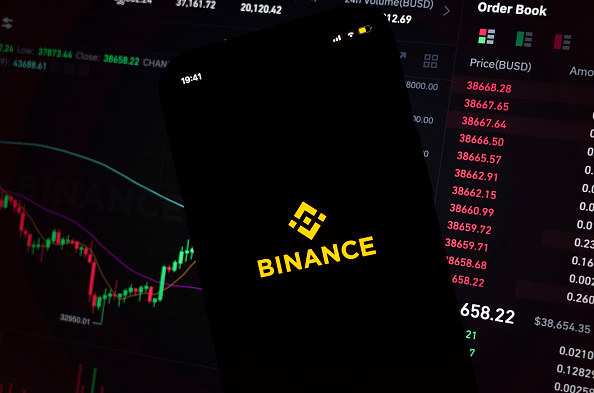The SEC hit Binance, the world’s largest crypto exchange, and its CEO Changpeng Zhao with 13 charges in a suit on Monday, including allegations of lying to regulators about its operations.
Much of the SEC’s suit deals with how Binance and its Binance.US subsidiary operated, with the latter falling under the umbrella of BAM Trading. It also touches on securities violations, including details on several crypto tokens that it considers to be securities, and how the Binance team worked to evade U.S. securities law and regulatory oversight.
Binance and BAM Trading were under Zhao’s leadership and control and operated without registering with the SEC, the agency alleges. “Zhao and Binance created BAM Management and BAM Trading in the United States and claimed publicly that these entities independently controlled the operation of the Binance.US platform.”
However, behind the scenes, according to the suit, Zhao and Binance were allegedly “intimately involved” in directing the trading entity’s business operations and providing crypto-related services to the Binance.US platform, which claims it’s an independent exchange.
The charges also included misleading investors about Binance’s systems to detect and control manipulative trading; regulators say that the exchange didn’t take proper steps to restrict U.S.-based investors from accessing its platform. The SEC also alleges that cryptocurrency BNB and stablecoin BUSD are securities.
“The new complaint from the SEC against Binance is a laundry list of charges, laying out exactly the same claims that many in Bitcoin and crypto have made against Changpeng Zhao and his companies for many years,” Cory Klippsten, CEO of Swan Bitcoin, told TechCrunch+. “These practices of Binance have essentially been open secrets, so no one who operates in the space will be surprised by any of the charges.”
A number of sources that TechCrunch+ spoke to on Monday shared similar sentiments that the charges against Binance were unsurprising.
Most people in the industry think these charges were a question of “when, not if the SEC would take action,” Jeffrey Blockinger, chief counsel at decentralized exchange Vertex Protocol, said.
Binance.US has been in “hot water for a while,” Chris Martin, head of research at Amberdata, said. “Just look at the CFTC suit against them, which appears to have been a warning shot.”
The SEC’s action comes a few months after the CFTC filed a lawsuit against Binance and Zhao for allegedly evading U.S. rules by offering unregistered futures and options contracts to American traders.
Binance’s market share has been on a “slow decline” since the CFTC case in March, Martin noted. “That’s compounded by the fact that Binance.US makes up a fraction of Binance total market share.”
Zooming out, this is part of “a disturbing trend of regulation by enforcement, without rules that are properly designed for digital assets,” Dave Weisberger, CEO and co-founder of crypto algorithmic-trading platform CoinRoutes, said. But the SEC chose to sue both the U.S. and international entities at Binance, “despite there being major differences in jurisdiction and products offered,” he said.
“I find it very interesting that the SEC brought this case against Binance before Coinbase. It makes perfect sense, because Binance doesn’t have the massive U.S. investor base and lobbying arm that Coinbase has,” Klippsten said. “There’s no constituency to argue for Binance here in the USA. So setting precedent with the Binance case makes a lot of sense, before tackling Coinbase’s unregistered securities exchange.”
While this isn’t positive news for the crypto ecosystem in the short term, clarity on regulation in the long run is an incredibly positive sign for the ecosystem both inside and outside the U.S..
“I don’t think this moves the needle for the crypto ecosystem. Entities that can stay out of the U.S. have long been taking steps to block U.S. customers,” Blockinger said.
Centralized exchanges with a significant presence in the U.S. — and which haven’t blocked American customers — have been “gearing up to face off with the SEC for a while now,” Blockinger said. “I suspect their efforts will only intensify.”
